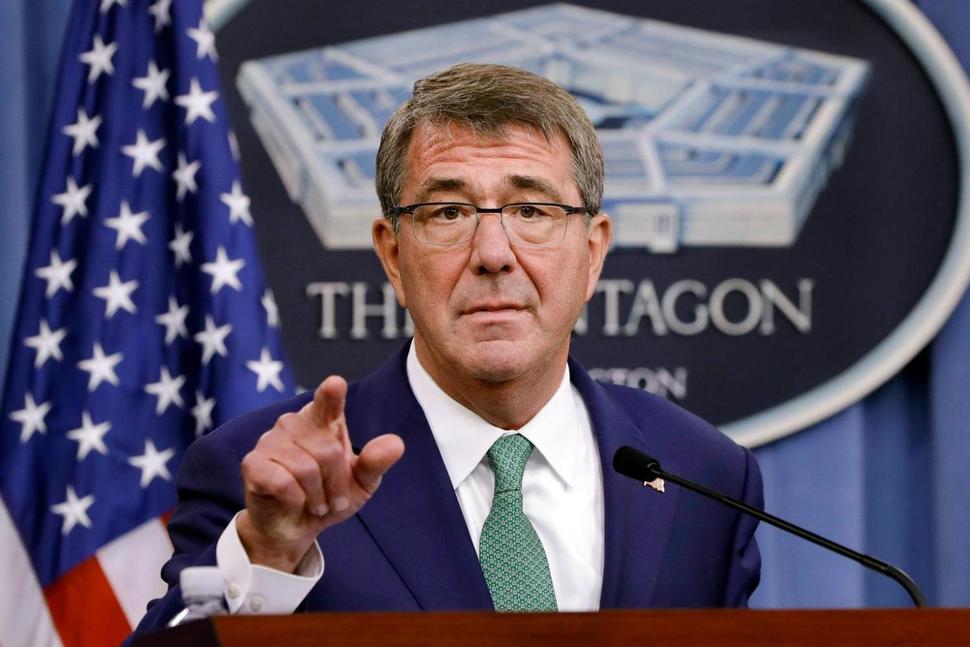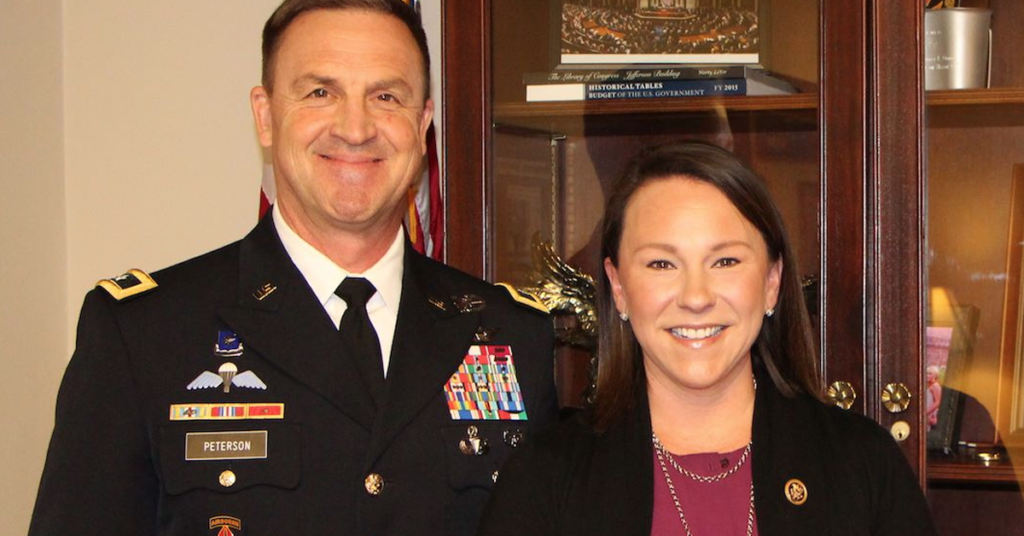Terri Sewell: A defining legacy of excellence worth protecting — the 187th Air National Guard Fighter Wing

Alabama is a state rich with tradition and legacies of excellence. Yet, one that stands out is the legacy of military excellence exhibited by the 187th Air National Guard Fighter Wing, located at Dannelly Field in Montgomery, Alabama. The 187th Air National Guard Fighter Wing has an unparalleled legacy of excellence worthy of praise and worth protecting for the future. Currently, the guard unit is a prime candidate to fly the new F-35A Lightning II fighter jets, known as the Joint Strike Fighter. The 187th currently flies the oldest F-16s in the U.S. Air Force’s inventory; however, it is among eighteen Air National Guard units competing for the coveted new aircraft. The Alabama delegation in Congress is unanimous and steadfast in our support of the 187th Air National Guard Fighter Wing winning this new assignment. Nothing helps us make the case more than the long history of outstanding military service that has been the proud legacy of the 187th The 187th Fighter Wing has a proven combat track record and an unparalleled military heritage. It is home to the 100th Fighter Squadron – the famed “Red Tails.” This squadron’s linage traces back to World War II and the renowned Tuskegee Airmen, America’s first black military pilots and support personnel. The 187th benefits from being a key strategic resource – only five miles from Maxwell Air Force Base, and twenty-five minutes flying time from Eglin, Tyndall, Hurlburt, and Moody Air Force Bases. This presents numerous opportunities for joint air-to-air and air-to-ground training. F-35 pilots of the 187th may also utilize the electronic ranges on Eglin AFB. This is all contingent, however, on the unit being outfitted with the new fighter jets. During my tenure in office, I have been and will continue to be a stalwart advocate for this vital national resource located in my district. As a Member of the House Permanent Select Committee on Intelligence, I have a unique perspective on the challenges and opportunities that confront our nation. I am also keenly aware that the world we live in is filled with potential threats that are constantly developing and changing. We have to remain ever vigilant and be prepared to not only confront ongoing threats but those emerging as well. A major key to our success requires that we maintain air-superiority and provide effective air- cover for our men and women deployed in combat zones. This is the defining legacy of the 187th from World War II to today. Given its rich history and superior service to this nation, the 187th Air National Guard Fighter Wing stands poised and well-equipped to bring the next generation of air power to the Alabama Air National Guard. ••• Rep. Terri A. Sewell (D-AL) is beginning her fourth term representing Alabama’s 7th Congressional district. She is a member of the exclusive House Committee on Financial Services and the distinguished House Permanent Select Committee on Intelligence where she serves as the Ranking Member on the Subcommittee on the Department of Defense Intelligence and Overhead Architecture. Rep. Sewell is a Chief Deputy Whip and sits on the prestigious Steering and Policy Committee of the Democratic Caucus. She serves as a member of the Congressional Black Caucus and is Vice Chair of Outreach for the New Democrat Coalition.
House passes $611 billion policy defense bill by wide margin

The Republican-led House on Friday overwhelmingly backed a $611 billion defense policy bill that rejects a number of President Barack Obama’s key proposals for managing the nation’s vast military enterprise. Lawmakers passed the legislative package, 375-34. The bill now goes to the Senate where a vote is expected early next week. The bill, crafted after weeks of talks between House and Senate negotiators, prohibits Obama from following through on his longstanding campaign pledge to close the prison at Guantanamo Bay, Cuba. The bill also bars the Pentagon from reducing the number of military bases even though senior U.S. defense officials said there is excess capacity, and it awards U.S. troops their largest pay raise in six years. Obama had recommended a smaller pay increase. The bill would prevent the Pentagon from forcing thousands of California National Guard troops to repay enlistment bonuses and benefits they received a decade after they signed up to serve in Iraq and Afghanistan. Soldiers would have to return a bonus only if a “preponderance of the evidence” shows they knew they weren’t eligible to receive the money. Even at $611 billion, the Republican chairman of the House Armed Services Committee lamented that more money is needed in the defense budget to restock the U.S. arsenal worn down by 15 years of conflict. Rep. Mac Thornberry of Texas said he is hopeful President-elect Donald Trump, who pledged during the campaign to spend more on the military, will ask Congress early next year to boost fiscal year 2017 military spending even further. During his 2008 bid for president, Obama pledged to close the detention facility at Guantanamo, which he called a recruiting tool for extremist groups. But Republicans and a number of Democrats repeatedly thwarted his goal over the ensuing years, arguing the prison was badly needed for housing suspected terrorists. The ban on closing the prison also includes a prohibition on moving Guantanamo detainees to secure facilities in the U.S. Trump has not only pledged to keep Guantanamo open, he said during the campaign that he wants to “load it up with some bad dudes.” The defense legislation also authorizes a 2.1 percent pay raise for the troops – a half-percentage point higher than the Pentagon requested in its budget presentation. The Republican chairman of the Armed Services Committee, Sen. John McCain of Arizona, said it’s the largest military pay increase since 2010. The White House Office of Management and Budget objected to the larger raise, telling lawmakers earlier this year that the lower amount would save $336 million this fiscal year and $2.2 billion through 2021. A bigger increase, the budget office said, would upset the careful balance between competitive pay and acquiring cutting-edge equipment and training. The bill blocks the Pentagon’s planned reductions in the number of active-duty troops by prohibiting the Army from falling below 476,000 active-duty soldiers – 16,000 more than Obama’s defense budget had proposed. The bill also adds 7,000 service members to the Air Force and Marine Corps. House and Senate negotiators dropped a House plan to shift $18 billion from the emergency wartime spending account to pay for additional weapons and combat gear the Pentagon didn’t include in its budget request. They elected instead to boost the wartime account, which isn’t constrained by mandatory budget limits, by $3.2 billion to help halt a decline in the military’s ability to respond to global threats. The decision may have been motivated by Trump’s assurances that he would increase defense spending dramatically, allowing the armed forces to add tens of thousands more troops and acquire new weapons. The defense bill contains $5.8 billion in additional war-related funding Obama requested last month primarily for operations in Iraq, Syria and Afghanistan. That includes $2.5 billion to maintain elevated U.S. troop levels of 8,400 in Afghanistan as announced over the summer. About $383 million would pay for air strikes against Islamic State militants. Lawmakers avoided wading more deeply into social policy issues by stripping two contentious provisions from the bill. One, opposed by Democrats, would have allowed federal contractors to discriminate against workers on the basis of sexual or gender orientation. Another, opposed by Republicans, would have required for the first time in U.S. history that young women sign up for a potential military draft. The Obama administration on Thursday declared its support for requiring women to register for the military draft, a symbolic but significant shift that reflects the U.S. military’s evolution from a male-dominated force to one seeking to incorporate women at all levels. Republished with permission of The Associated Press.
White House announces support for women in military draft

The Obama administration has declared its support for requiring women to register for the military draft, a symbolic but significant shift that reflects the U.S. military’s evolution from a male-dominated force to one seeking to incorporate women at all levels. President Barack Obama has been considering whether to adopt the position since last December, when Defense Secretary Ash Carter ordered the military to open all jobs to women, including the most arduous combat posts. Ned Price, a spokesman for the White House’s National Security Council, said Thursday that Obama believes women have “proven their mettle,” including in Afghanistan and Iraq. “As old barriers for military service are being removed, the administration supports – as a logical next step – women registering for the Selective Service,” Price said, using the formal name for the military draft. The White House emphasized that the administration remains committed to an all-volunteer military – meaning women, like men, wouldn’t be forced to serve unless there were a national emergency like a major world war. Changing the policy would require an act of Congress, and there are no signs that lawmakers plan to move swiftly to alter the law. Obama, who will leave office in less than two months, has less leverage over Congress and the broader Washington agenda than he did earlier in his presidency. Like his embrace of gay marriage in 2012, Obama’s announcement appeared aimed more at influencing the public debate about women in the military in the coming years than forcing an immediate policy change. The Defense Department echoed Obama’s position, first reported by USA Today. Pentagon press secretary Peter Cook said that Carter believes the inclusion of women throughout the military’s echelons has strengthened the military’s might. “He thinks it makes sense for women to register for Selective Service, just as men must,” Cook said. But a $611 defense policy bill now up for a vote in the House stripped out language that would have required women to register for the draft. Late last year, the Pentagon ordered all military jobs opened to women, including about 220,000 jobs previously restricted to men, including in special operations forces. Carter and other military leaders insisted that the military wouldn’t lower the physical standards for those jobs to enable more women to qualify. Integrating women has not been fast or easy. Earlier this year the top Army and Marine Corps generals told senators it would take up to three years to fully integrate women into all combat jobs. The military services have started recruiting women for those jobs and making necessary changes to bathrooms and other facilities. But some of the services, such as the Marine Corps, have predicted or experienced challenges identifying large numbers of candidates who want to serve in combat and meet the physical requirements. Under current law, women can volunteer to serve in the military, but aren’t required to register for the draft. All adult men must register within 30 days of their 18th birthday, and risk losing eligibility for student aid, job training and government jobs if they fail to comply. Signing up for the draft entails registering with the U.S. Selective Service, an independent agency aimed at ensuring a fair distribution of military duties if the president and Congress had to enact a draft. The U.S. hasn’t had a military draft since 1973, during the Vietnam War era. The new posture from the Obama administration came at an unusual time, just two days after House and Senate negotiators agreed to strip a provision from the annual defense policy bill that would have required young women to register. The measure had roiled social conservatives, who decried it as another step toward the blurring of gender lines akin to allowing transgender people to use public lavatories and locker rooms. Rep. Pete Sessions, R-Texas, spoke for a number of Republicans when he described the provision as “coercing America’s daughters” into draft registration. But proponents of including women in the draft pool viewed the requirement as a sensible step toward gender equality. They pointed to the Pentagon’s decision last year to open all front-line combat jobs to women as removing any justification for gender restrictions on registration. Republished with permission of The Associated Press.
Donald Trump to nominate retired Gen. James Mattis to lead Pentagon

President-elect Donald Trump says he will nominate retired Gen. James Mattis to be his defense secretary. Mattis, 66, is a Marine Corps general who retired in 2013 after serving as the commander of the U.S. Central Command. Trump made the announcement Thursday night at a post-election victory rally in Cincinnati. Mattis’ selection raises questions about increased military influence in a job designed to insure civilian control of the armed forces. The concerns revolve around whether a recently retired service member would rely more on military solutions to international problems, rather than take a broader, more diplomatic approach. For Mattis to be confirmed, Congress would first have to approve legislation bypassing a law that bars retired military officers from becoming defense secretary within seven years of leaving active duty. Mattis has a reputation as a battle-hardened, tough-talking Marine who was entrusted with some of the most challenging commands in the U.S. military. In a tweet last month, Trump referred to Mattis by his nickname “Mad Dog” and described him as “A true General’s General!” Mattis would be only the second retired general to serve as defense secretary, the first being George C. Marshall in 1950-51 during the Korean War. Marshall was a much different figure, having previously served as U.S. secretary of state and playing a key role in creating closer ties with Western Europe after World War II. The only previous exception to the law requiring a gap after military service was for Marshall. Although his record in combat and his credentials as a senior commander are widely admired, Mattis has little experience in the diplomatic aspects of the job of secretary of defense. Richard Fontaine, president of the Center for a New American Security, described Mattis as a defense intellectual and as a military leader who distinguished himself in combat. “He knows the Middle East, South Asia, NATO and other areas and has evinced both a nuanced approach to the wars we’re in and an appreciation for the importance of allies,” Fontaine said in an email exchange. “If he were to get the nomination, I suspect that he could attract a number of very talented people to work with him.” But Mattis hasn’t been immune to controversy. He was criticized for remarking in 2005 that he enjoyed shooting people. He also drew more recent scrutiny for his involvement with the embattled biotech company Theranos, where he serves on the board. Born in Pullman, Washington, Mattis enlisted in the Marine Corps in 1969, later earning a history degree from Central Washington University. He was commissioned as an officer in 1972. As a lieutenant colonel, Mattis led an assault battalion into Kuwait during the first U.S. war with Iraq in 1991. As head of the Central Command from 2010 until his retirement in 2013, he was in charge of both the wars in Iraq and Afghanistan. In the aftermath of the 9/11 attacks, Mattis commanded the Marines who launched an early amphibious assault into Afghanistan and established a U.S. foothold in the Taliban heartland. As the first wave of Marines moved toward Kandahar, Mattis declared that, “The Marines have landed, and now we own a piece of Afghanistan.” Two years later, he helped lead the invasion into Iraq in 2003 as the two-star commander of the 1st Marine Division. In 2005, he raised eyebrows when he told a San Diego forum that it was “fun to shoot some people.” According to a recording of his remarks, Mattis said, “Actually, it’s a lot of fun to fight. You know, it’s a hell of a hoot. … It’s fun to shoot some people. I’ll be right up front with you, I like brawling.” He added, “You go into Afghanistan, you got guys who slap women around for five years because they didn’t wear a veil,” Mattis continued. “You know, guys like that ain’t got no manhood left anyway. So it’s a hell of a lot of fun to shoot them.” Mattis was counseled to choose his words more carefully. A year later, Mattis came under scrutiny during one of the more high-profile criminal investigations of the Iraq war, the shooting deaths of 24 Iraqis by Marines. The Iraqis, who included unarmed women and children, were killed by Marines in the town of Haditha after one of their comrades was killed by a roadside bomb. Eight Marines were charged in connection with the killings – four enlisted men were charged with unpremeditated murder and four officers who weren’t there at the time were accused of failures in investigating and reporting the deaths. As commander of the accused Marines’ parent unit, the 1st Marine Expeditionary Force, Mattis ultimately dismissed charges against most of the Marines. As a top Marine general, Mattis pushed for the military to adopt blood-testing technology developed by Theranos. As reported by The Washington Post, Mattis first met Theranos founder Elizabeth A. Holmes in 2011. A year later, according to emails obtained by The Post, Holmes used her connection to Mattis to pressure him to intervene after a Pentagon official raised concerns that the company was distributing its technology without approval by the Food and Drug Administration. The emails show within hours after Holmes asked Mattis for help, he forwarded her email to other military officials asking them,”how do we overcome this new obstacle.” Mattis joined the Theranos board the same year he retired. The company, which raised hundreds of millions of dollars on the promise of breakthrough blood-testing technology, was forced to invalidate two years of patients’ test results after the reliability of its proprietary blood-testing machinery was questioned by internal and government whistleblowers and investigative reporting by The Wall Street Journal. Republished with permission of The Associated Press.
Alabama Dept. of Archives and History seeks to collect Vietnam memorabilia

An initiative that launched last month on Veterans Day is enlisting the help of Vietnam veterans across the Yellowhammer State. “Collecting Vietnam” is a new project of the Alabama Department of Archives and History (ADAH) that is seeking to document the experience Vietnam veterans from Alabama both overseas and stateside. ADAH is looking to veterans to help acquire uniforms, equipment, photographs, letters, as well as other items for its permanent museum and archival collections based in Montgomery, Ala. Interested in donating? Contact Registrar, Sherrie Hamil at (334) 353-4726 or sherrie.hamil@archives.alabama.gov.
Lawmakers won’t require troops to repay enlistment bonuses

House and Senate negotiators have agreed not to require thousands of California National Guard troops to repay enlistment bonuses a decade after they signed up to serve in Iraq and Afghanistan. The Pentagon had demanded the money back after audits revealed overpayments by the Guard under pressure to fill ranks and hit enlistment goals. But a provision in the annual defense policy bill being filed Wednesday requires the Pentagon to waive the recoupment of a bonus unless there is evidence showing service members “knew or reasonably should have known” that they weren’t eligible to receive the money. A vote in the House on the must-pass defense bill is expected by Friday, followed by action in the Senate next week. The Guard offered enlistment bonuses of as much as $15,000 and student loan aid at the height of the two wars in the 2000s. Members of the California congressional delegation and veterans leaders had expressed outrage over a decision to force troops who had served overseas to return money when they fault lay with military recruiters. “It’s clear that the Pentagon had all the right authorities to prevent this mess in the first place, but the benefit now is that Congress is going to keep the individuals overseeing this honest and the process open all the way through,” Rep. Duncan Hunter, R-Calif., said Wednesday. Hunter is a member of the House Armed Services Committee. The provision to be included in the bill would apply beyond California troops and cover any member of the U.S. armed forces. The measure shifts the burden to Defense Department officials to prove service member were not eligible for a bonus or another type of special pay. A review board is to examine all the bonuses and student loan repayment contracts awarded between 2004 and 2015 “for which the department has reason to believe a recoupment of pay may be warranted,” the measure states. Any service member determined not to have been eligible for the bonus pay or aid must be contacted by service officials and given the opportunity to submit “documentary and other evidence,” according to the provision. The board is directed to determine recoupment of a bonus unwarranted “unless the board makes an affirmative determination, by a preponderance of the evidence, that the member knew or reasonably should have known” they weren’t entitled to the money. Rep. Darrell Issa, R-Calif., called the compromise “an important fix that ultimately does the right thing” by moving the burden of proof off the soldiers and onto the Defense Department. “If soldiers who already repaid their bonuses do not have their money returned in an expeditious manner or if we later discover the Pentagon is still pursuing soldiers who accepted bonuses in good faith, we will revisit this with new legislation on Day 1 of the new Congress,” Issa added. Republished with permission of The Associated Press.
Pentagon chief Ash Carter: Don’t extend stopgap funding through May

Defense Secretary Ash Carter Tuesday warned Republican leaders in Congress that plans to operate the Pentagon on autopilot through as late as May are “unprecedented and unacceptable.” Carter said such plans would freeze the sprawling department’s budget for too long and harm national security. GOP leaders are negotiating over the duration of a stopgap spending measure to keep the Pentagon and most of the rest of the government operating after the current temporary funding bill expires next Friday. House Republicans initially said the next stopgap measure, called a “CR” in Washington parlance, would run through March 31 but Senate Majority Leader Mitch McConnell, R-Ky., wants a later date because the Senate will be so busy with a crush of business under the incoming Trump administration. “A short-term CR is bad enough, but a CR through May means DoD would have to operate under its constraints for two-thirds of the fiscal year,” Carter said. “This is unprecedented and unacceptable, especially when we have so many troops operating in harm’s way.” McConnell had initially pressed to wrap up the remaining 11 appropriations bills – totaling more than $1 trillion – by the end of this year. But House Speaker Paul Ryan, R-Wis., bowed to the wishes of the incoming administration and demands by conservatives to punt the unfinished legislation into next year. Some Republicans believe they’ll get a better deal next year from Trump than they would from President Barack Obama – including more Pentagon funding and policy “riders” to reverse Obama regulations – but top aides say the legislative outcomes probably won’t be much different. Carter also warned of delays in procurement of new weapons such as transport and attack helicopters, a new in-flight tanker for the Air Force, and a next-generation nuclear submarine. Republished with permission of the Associated Press.
Martha Roby meets with military leaders, discusses Alabama installations

Upon returning to Washington, D.C. this week, Alabama 2nd District U.S. Rep. Martha Roby has been meeting with top military leaders to discuss the future of Alabama’s military installations. On Wednesday, Roby met with General David Goldfein, United States Air Force Chief of Staff, to discuss priorities going into the new year, including those related to Maxwell-Gunter Air Force Base in Montgomery. Roby said items on her list to discuss were continuing Maxwell’s unique role in military education, the potential for the Alabama-based 187th Fighter Wing to land the F-35 program, and the the upkeep of on-base military housing, which has concerned community leaders recently. “Maxwell-Gunter Air Force Base is such a vital part of not just the River Region but the entire State of Alabama, and I appreciated the opportunity to discuss Maxwell’s future as the intellectual center of the Air Force,” Roby said of her meeting. “When it comes to the military’s impact on Alabama, there is no shortage of topics. With an incoming presidential administration, there is obviously a lot changing. Part of my job is building relationships with our military leaders so that we can communicate clearly about decisions that will have an effect on Maxwell and other installations around the state.” On Tuesday, Roby met with Army Maj. Gen. Eric Peterson, who oversees Army Aviation at the Pentagon. Fort Rucker in the Wiregrass is home to the Army Aviation Center of Excellence, making this meeting particularly relevant to the 2nd District Congressman. Watch Roby discuss her meeting with General Goldfein below:
Jeff Sessions: 5 things you need to know about Donald Trump’s closest congressional ally

President-elect Donald Trump is wasting no time in putting his cabinet together and Alabama’s own Sen. Jeff Sessions finds himself among the list of politicians the President-Elect is considering for a top post. First elected in 1996, the 69-year-old Senator is among the most conservative members of the U.S. Senate and a perennial Tea Party favorite. Here’s five things you should know about Jeff Sessions: Sessions was the first sitting senator to endorse Donald Trump during primary season Ahead of Super Tuesday and the Alabama primary, Sessions became the first sitting U.S. Senator to endorse Trump.”I told Donald Trump this isn’t a campaign, this is a movement,” Sessions said at a rally in Madison, Ala. Sessions acknowledged that “we don’t get everything we want” in a candidate but added: “At this time, in my best judgment, at this time in America’s history, we need to make America great again.” In May, Sessions said the Republican party must embrace Trump. “I think [Paul Ryan] needs to recognize, on some of these issues, Trump is where the Republicans are and if you’re going to be a Republican leader you should be supportive of that,” Sessions said on Politico’s “Off Message” podcast. Sessions has long-said a Mexican border wall is “an essential part” of fixing illegal immigration In the Senate, Sessions has long pressed for a crackdown on immigration, saying he’s opposed to any path for legal citizenship for undocumented immigrants and is in favor of Trump’s plan to build a wall on the Southern border.“The crisis at the southwest border highlights the simple fact that without barriers to prevent the illegal entry of additional aliens, the brave men and women of the U.S. Border Patrol simply do not have enough personnel to detain and deport all illegal border-crossers,” Sessions said eight days before Trump won the election. Sessions was a leading opponent of the 2007 amnesty bill and 2013 “Gang of Eight” amnesty bill. The Gang of Eight bill largely ended immigration enforcement, opened up welfare and citizenship to millions of illegals aliens, issued an 33 million green cards in a single decade, and doubled the annual flow of temporary workers to fill jobs at lower wages. Sessions has also been a leading opponent of President Obama’s executive amnesties, which gives jobs and benefits to illegal workers. “The most important thing is to focus first and foremost on a lawful system that protects the interests of the American people first. If you enter the country unlawfully you’re subject to being deported. That’s just what the law has always been. But we have large number of people that have been here a very long time,” Sessions said during a 2016 interview on “Fox & Friends.” Sessions served in the U.S. Army Reserves and believes in having a strong American military Sessions served in the United States Army Reserve from 1973 to1986 ultimately attaining the rank of Captain. He still considers that period to be one of the most rewarding chapters of his life.He’s a senior member of the prestigious Senate Committee on the Armed Services. He’s also senior member on the Strategic Forces Subcommittee, which oversees all U.S. nuclear weapons, missile defense, and strategic strike programs. In this role, he has been a strong advocate for protecting American security through deterrence and defense. As strong advocate for America’s military, Sessions has advocated four major defense installations in Alabama – Redstone Arsenal in Huntsville; Fort Rucker, near Ozark; Maxwell Air Force Base in Montgomery; and the Anniston Army Depot. Sessions is a lawyer by trade and served as Alabama’s attorney general for two years Having earned a J.D. from the University of Alabama School of Law in 1973, Sessions’ first began as a practicing attorney in Russellville, Ala., and then in Mobile, a place he now calls home. Following a two-year stint as Assistant United States Attorney for the Southern District of Alabama from 1975-1977, Sessions was nominated by President Ronald Reagan in 1981 and confirmed by the Senate to serve as the United States Attorney for Alabama’s Southern District, a position he held for 12 years. In 1995, Sessions was elected Alabama Attorney General, serving as the state’s chief legal officer until 1997, when he entered the United States Senate. Sessions is a staunch pro-life conservative who opposes same-sex marriage Sessions has been a consistent supporter of pro-life policies. He is an original co-sponsor of the Partial-Birth Abortion Ban Act of 2003 and believes that sanctity of life begins at conception. Sessions believes that a marriage is union between a man and a woman, and has routinely criticized the U.S. Supreme Court and activist lower courts when they try to judicially redefine marriage.
Alabama delegation honors America’s veterans

On Veterans Day, Americans across the country salute our brave men and women in uniform who have sacrificed so much for our nation. Today, in honor of Veterans Day, members of the Alabama congressional delegation are paying tribute to their selfless service and sacrifices. Here’s what the Alabama delegation is saying in honor of Veterans Day: Sen. Richard Shelby: Each year, friends and neighbors across the country pause to honor our nation’s military heroes who selflessly sacrificed for the freedoms we enjoy as Americans. Veterans Day is an important time to remember that freedom does not come free, and that we owe a great debt of gratitude to the men and women of our Armed Forces for their extraordinary service. Ala. 1st District U.S. Rep. Bradley Byrne: Earlier this week, we held an election to pick our nation’s next leader. That is an honor we all have thanks to the sacrifice and service of our nation’s veterans. These men and women put their lives on the line in order to keep us safe and protect the freedoms we all hold dear. Be sure to take time today to say thank you to a veteran, but let’s not just honor our veterans one day a year. Let’s honor our veterans each and every day. Their service demands nothing less. Ala. 2nd District U.S. Rep. Martha Roby: All we are as a nation – the freedom and opportunity we enjoy as Americans – we owe to the men and women who have put on the uniform and defended our country in times of conflict. Thank you to all veterans and their families for your service and sacrifice. Ala. 4th District U.S. Rep. Robert Aderholt: “Freedom is never more than one generation away from extinction. We didn’t pass it to our children in the bloodstream. It must be fought for, protected, and handed on for them to do the same.” – Ronald Reagan Ala. 5th District U.S. Rep. Mo Brooks: On this #VeteransDay2016 and every day we honor our nation’s military members for their selfless service in defense of America. It’s a privilege to represent #AL05 and support our veterans, active duty military personnel, and their families. Ala. 6th District U.S. Rep. Gary Palmer: As American citizens, we enjoy and exercise our freedom daily. But such privilege does not come without a steep cost. The valiant men and women of our Armed Services bravely defend our great nation daily from threats against our freedom, and they have thwarted off all enemies for well over 240 years. Without their service and their sacrifice, America would not be the great country it is today. I send my deepest thanks to every member of the Armed Forces, past, present and future. You are what makes America the Land of the Free and the Home of the Brave. God Bless America and God Bless our veterans. Ala. 7th District U.S. Rep. Terri Sewell: Today, we pay tribute to the brave men and women who have laid down their lives to keep our country safe. These individuals – men and women, fathers, wives, sons and daughters – have fought and died to protect the values we hold dear as a nation. We owe them a sincere debt of gratitude for their tremendous bravery and selfless sacrifice. That is why it is critically important for Congress to continue to support and provide needed resources to the Veterans Administration (VA) to ensure that our veterans and their spouses or widowers have access to quality health care, good-paying jobs, affordable housing, and other benefits they have rightly earned. We should not deny the very liberties to these American heroes and their families that they have fought to protect.
Tuskegee Airmen receive Congressional Gold Medal

Five members of the famed Tuskegee Airmen were honored with Congressional Gold Medals during a Veterans Day ceremony held at the National Warplane Museum on Friday. Since the American Revolution, Congress has commissioned gold medals as its highest expression of national appreciation for distinguished achievements and contributions. An act of Congress in 2006 secured the Congressional Gold Medal for all Tuskegee Experience participants from 1941 to 1949. Wallace C. Higgins and Herbert Thorpe were presented with medals at the ceremony. Thorpe also received a medal on behalf of his late brother, Richard Thorpe. Leland H. Pennington and Robert M. Johnson were also honored and their families received medals on their behalf. The Tuskegee Airmen were recruited into an Army Air Corps program called the “Tuskegee Experience” that trained Blacks to fly and maintain combat aircraft during World War II. They included pilots, navigators, bombardiers, maintenance and support staff, instructors, and all the personnel who kept the planes in the air. They trained as a segregated unit at an air base in Tuskegee, Ala. proving to the world that African-Americans could serve in roles beyond the mess hall or supply depot. The unit helped pave the way for desegregation of the military.
Gay rights looms as hurdle to passing defense policy bill

Congressional Republicans and Democrats will have to bridge a vast cultural divide over an issue that has nothing to do with bullets and bombs to complete a must-pass defense policy bill. A key sticking point in the negotiations during the upcoming lame-duck session is a House-passed provision that Senate Democrats say would undercut protections against workplace discrimination based on sexual or gender orientation. They’ve called the measure dangerous and are demanding it be removed from the $602 billion measure. Many House Republicans, however, view the provision as a bulwark for religious liberty and just as adamantly want it kept in the final package. Donald Trump‘s victory in the presidential election has strengthened their hand should the contentious debate begin anew next year. “It’s going to be a tough one for them to figure out,” said Justin Johnson, a senior defense policy analyst at the Heritage Foundation, a conservative think tank. Drop the amendment and risk a backlash from rank-and-file Republicans, he said. Keep it in and Democrats could mobilize to block the defense bill, which authorizes spending for military programs that range from jet fighters to a pay raise for the troops. A filibuster carries risks for Democrats. They could be hammered by the GOP for stymieing legislation important to U.S. service members and their families. And even if the provision is dropped to avoid a veto by President Barack Obama, Republicans – who control both houses of Congress – could wait until Trump is in the White House and attach the provision to a different bill. “I think the election gives congressional Republicans a lot more leverage on this issue,” Johnson said. “They don’t have to be too worried about a veto threat because the situation only improves next year.” Although much of Trump’s agenda on social issues remains opaque, he assured conservatives during the campaign that he would place a high priority on religious liberty. The tenure of Indiana Gov. Mike Pence, the vice president-elect, was punctuated by his steadfast support for conservative social issues that at times drew unwanted attention to the state, most notably when a religious objections law he signed provoked a national backlash from critics who said it could sanction discrimination against gay people. David Stacy, government affairs director at the Human Rights Campaign, acknowledged that the long-term prospects for barring the amendment from passing are challenging. But he said he’s bullish about the short term. Congress has little incentive to drag out a lame-duck session and that means passing a defense bill unburdened by a provision that has no bearing on the Pentagon’s core missions, according to Stacy. “The blame could fall either way,” said Stacy, suggesting Republicans could be seen as obstructionists for insisting the amendment be preserved at the expense of speedy passage of the defense bill. The provision is brief and requires any U.S. government office to provide protections and exemptions “to any religious corporation, religious association, religious educational institution, or religious society that is a recipient of or offeror” for a federal contract. Forty Senate Democrats plus two independents wrote in a letter last month that the provision would amount to government-sponsored discrimination by permitting religiously affiliated federal contractors to refuse to interview a job candidate whose faith differs from theirs and to fire employees who marry their same-sex partners or use birth control. The provision would “vastly expand religious exemptions” under the Civil Rights Act and Americans with Disabilities Act to allow contractors “to harm hardworking Americans who deserve to be protected from workplace discrimination based on sexual orientation, gender identity, religious identity, or reproductive and other health care decisions,” they said in the letter. Republicans argued the measure merely builds on existing law by ensuring that faith-based organizations that perform work for the U.S. government aren’t forced to act against their beliefs. The measure is known as the Russell amendment, named after its sponsor, Rep. Steve Russell, R-Okla. Paradoxically, opponents of the Russell amendment may find support from Sen. John McCain of Arizona, the Republican chairman of the Senate Armed Services Committee who plays a central role in determining the contents of the defense policy bill. The Arizona legislature passed a religious freedom bill in 2014 designed to give more legal protections to people who might be accused of discrimination for actions they took in accordance with religious beliefs. A frequently cited example is a business that denies service to gay or lesbian customers. With the state facing a national backlash from business leaders, including the National Football League, McCain urged then-Gov. Jan Brewer to veto the legislation. She did. “We’re hoping he sees this the same way,” said Maggie Garrett, legislative director for Americans United for Separation of Church and State. Republished with permission of the Associated Press.


